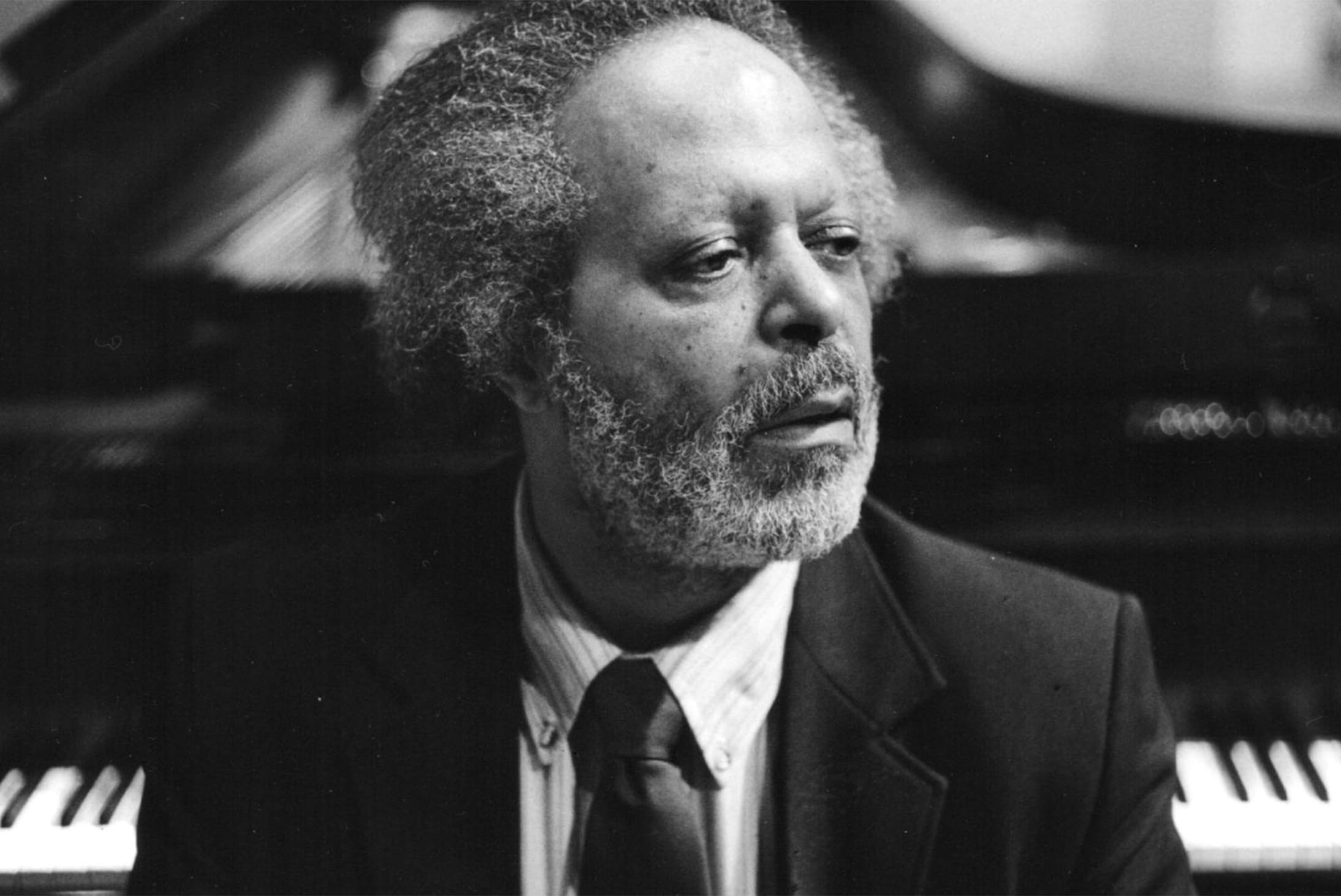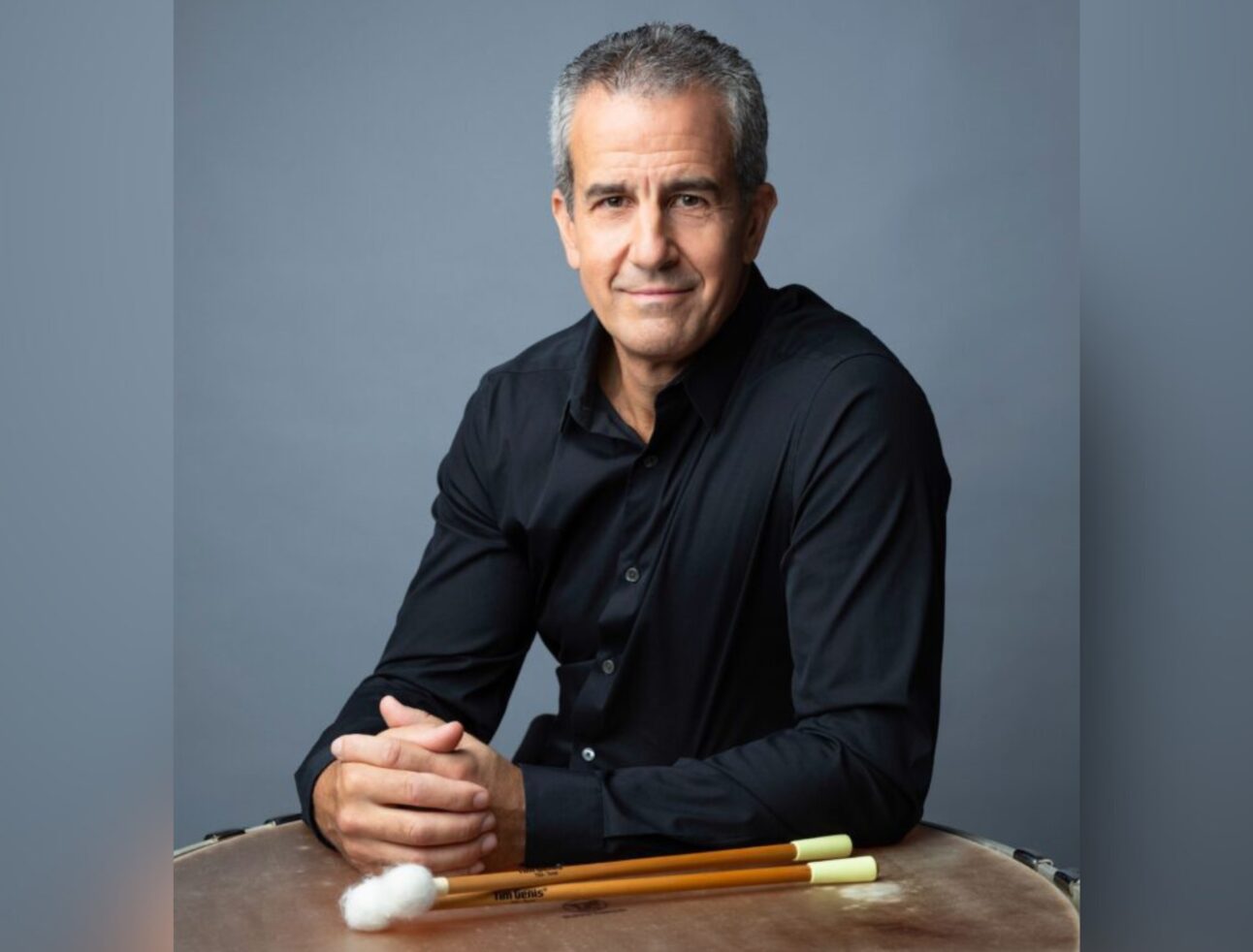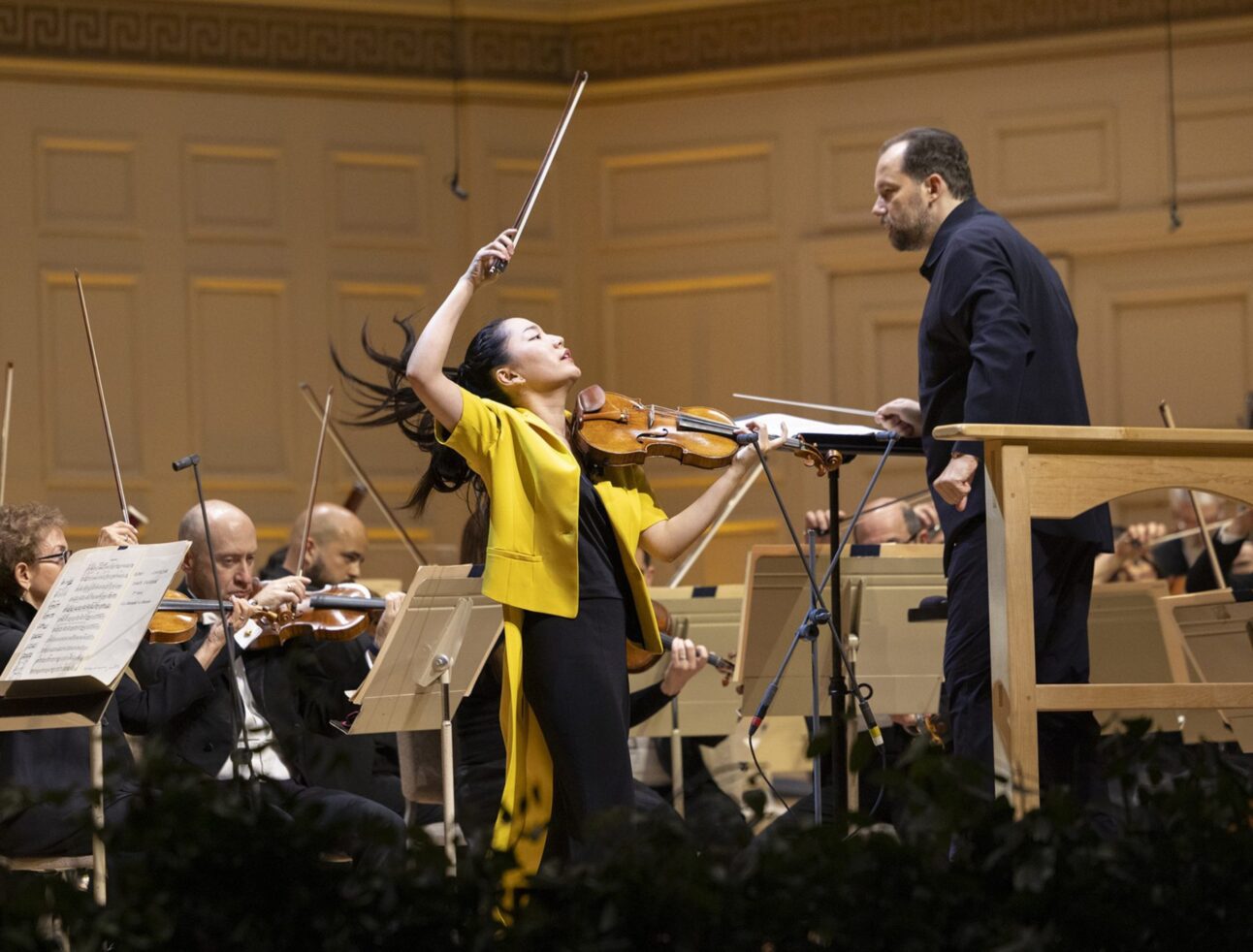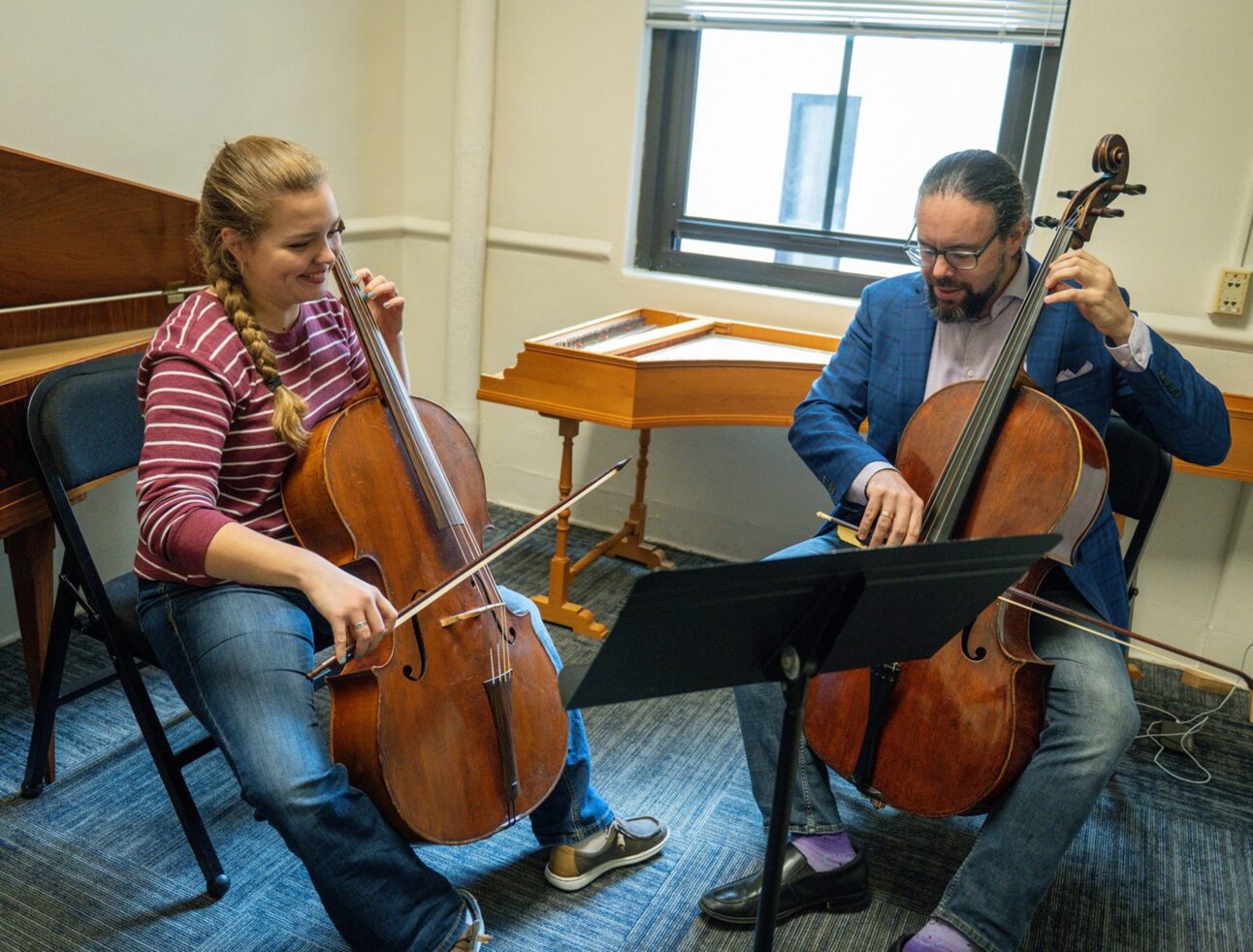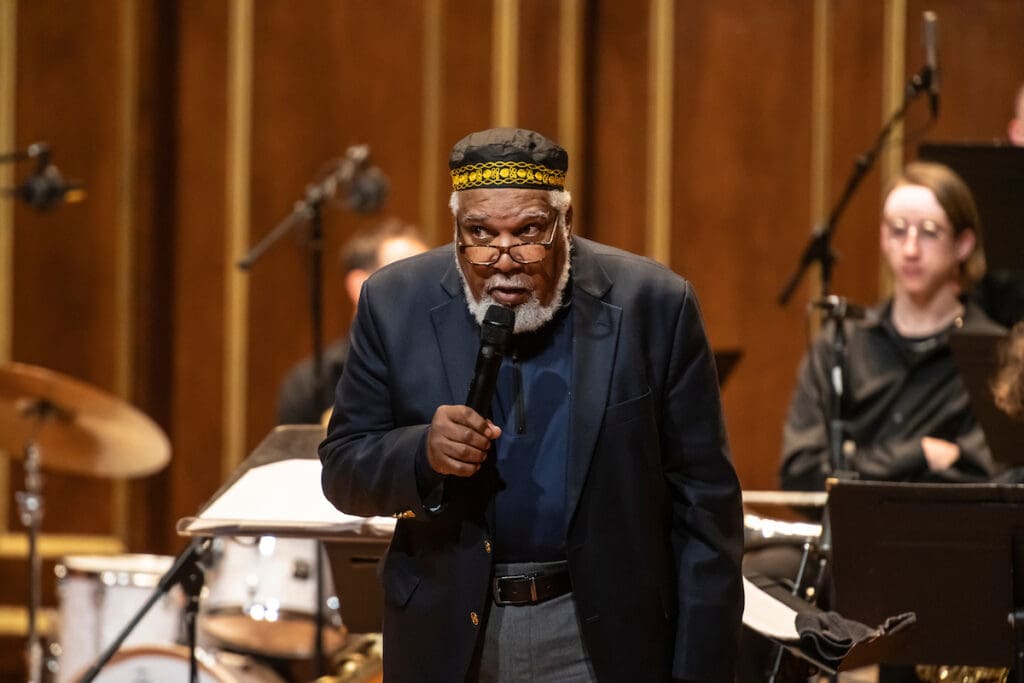
New England Conservatory recently celebrated the centennial of the birth of John Arthur “Jaki” Byard: influential jazz pianist and multi-instrumentalist, cornerstone of the original Afro-American Music and Jazz Studies Department founded in 1969 at NEC by Carl Atkins ‘75 MM, ‘21 Hon. DM and Gunther Schuller ‘78 Hon. DM, and native of Worcester, Massachusetts, who tragically passed away in 1999.
Byard’s legacy was honored with a full concert by the NEC Jazz Orchestra celebrating his work and arrangements with his group the Apollo Stompers, in addition to pieces written by Atkins in tribute to his friend and colleague.
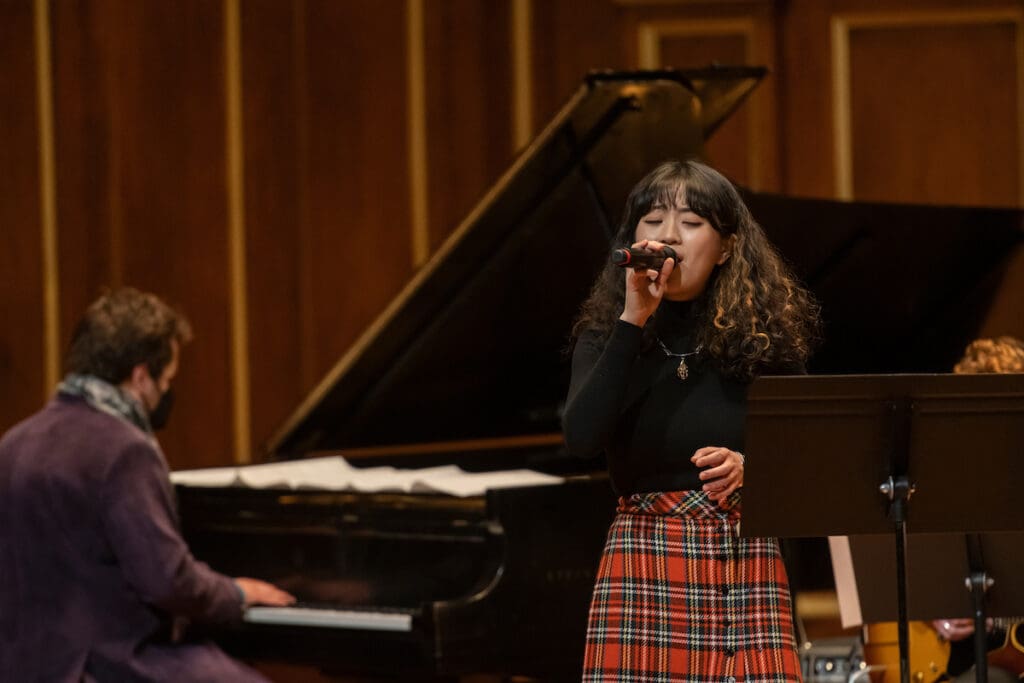
Prior to the concert, NEC held a panel discussion on Byard’s life, work, and influence on NEC, featuring the evening’s composers and soloists including saxophonist and composer Atkins, saxophonist Jed Levy ‘80, and Jazz Piano faculty member Jason Moran, facilitated by Jazz Studies chair Ken Schaphorst ‘84 MM. All of the panelists had worked or studied with Byard over the years at NEC and other institutions.
The panelists discussed how many of them first became aware of Byard due to his work in the 1950s and 1960s as a member of groundbreaking jazz ensembles, including as a member of Charles Mingus’ band.
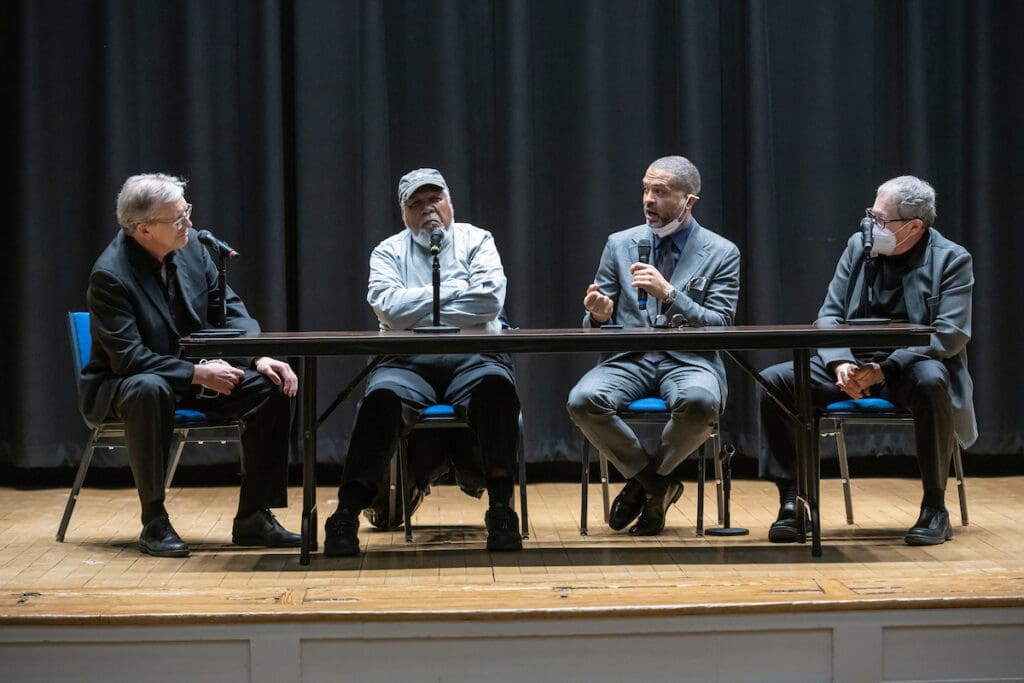
Atkins discussed how he consulted with Byard about the need for an Afro-American Music and Jazz Studies Department, and how Byard was a “singular musician who followed the muse to the Nth degree – always with an eye and ear to quality, but always wanted to have fun.” Calling him “one of a kind,” Atkins highlighted Byard’s kindness, generosity, and sense of humor, echoed by the other panelists (and by Contemporary Improvisation Co-Chair Hankus Netsky ’76, ’78 MM, himself a former student of Byard’s, during the panel’s Q&A portion).
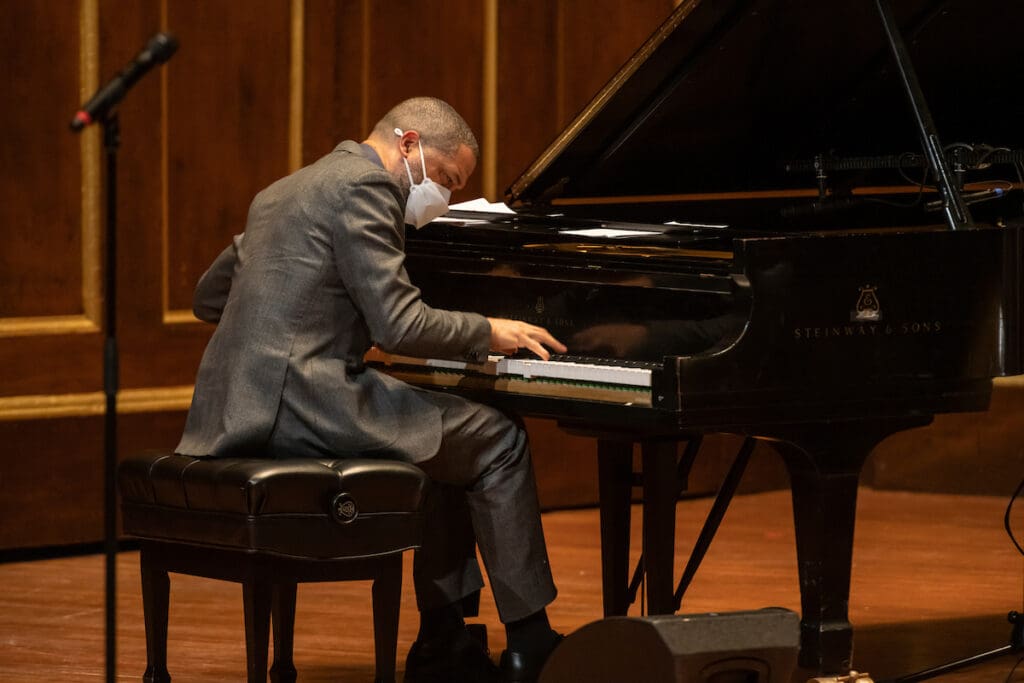
Decades later, Moran would move from Houston to New York to study with Byard in the 1990s, reflecting on how Byard embodied Black representation at the piano with a “mane of Frederick Douglass hair,” and how his unique approach included experimentation with language to stimulate musical ideas, and body movement to manipulate the keys in new ways.
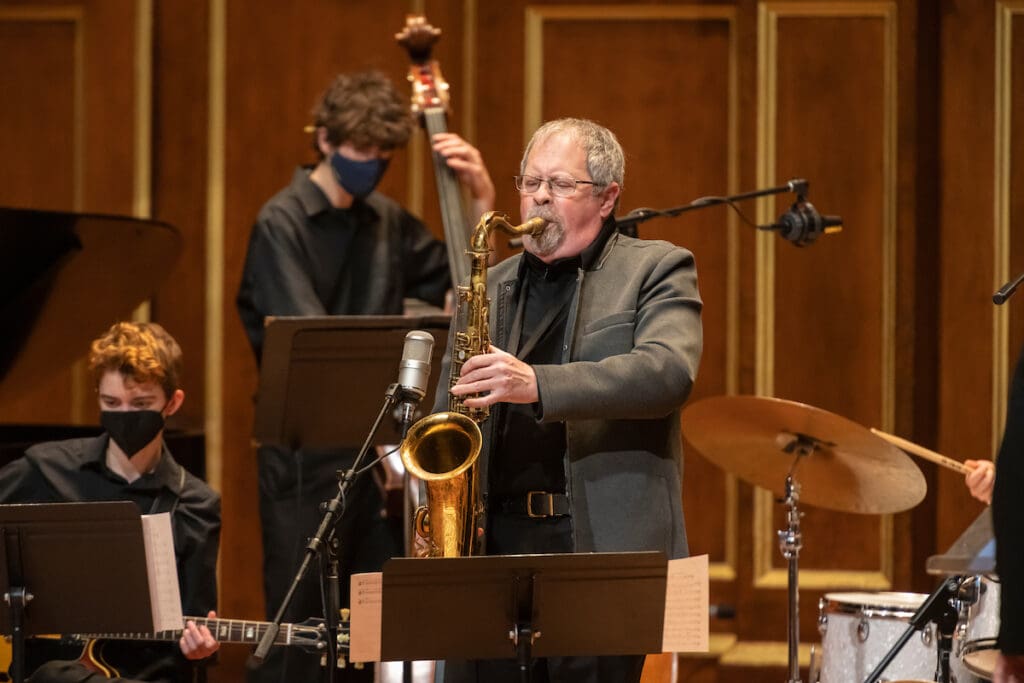
Moran reflected that working with him was “life-changing,” and “one of the treasured moments of my life was spending Mondays with him in New York.” Although Moran met Byard “later in life,” he noted Byard’s “holistic” approach to teaching and playing which incorporated their lives beyond music, and that he “seemed so at ease to give you all the gold to go make yours.”
Levy recalled playing as a member of Byard’s band, and even recording a whole album in the middle of the night at the WGBH studios here in Boston, along with the nights they would just hang out and listen to records in Byard’s suite in the NEC dorms. Levy commented,
“I’ve been fortunate to play with many great musicians, but there are two people who I wouldn’t hesitate to use the word ‘genius,’ and Jaki Byard was one of those people – it goes beyond his piano playing, his writing…he looked at nature and made music out of it.”
The panel and concert highlighted the unique contributions of Byard, an influential yet under-recognized artist, and set the stage for further explorations around his legacy, archive, and achievements.
“
Jason MoranIt’s been 25 years since I studied with him, and I’m still going through his music and learning from him.“
